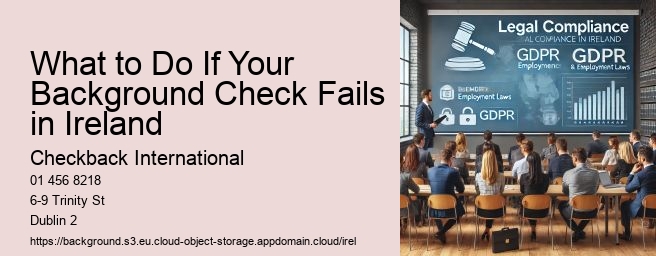

They can submit a formal request to the screening provider to obtain their personal data.
Understanding PSA 74:2019 Vetting Standards
Common mistakes in the vetting process include wrong information provided, missing or incomplete disclosures, and problems with confirming details through independent sources.
What Happens if a Candidate Fails to Meet PSA Standards?
Missing or unverifiable information during vetting might delay the process. Staff will contact candidates to obtain missing details or get clarification about information that cannot be verified.
3.Background check providers must have documented procedures for data deletion, subject access requests, and breach notifications.
Employment History VerificationThe centralized application system handles different checks while maintaining accuracy and compliance.
Data analytics tools and Artificial Intelligence increase the accuracy of candidate information verification and help predict worker performance. Digital platforms provide secure storage and sharing of background check data while maintaining GDPR compliance. Connecting verification software with HR systems helps keep hiring processes efficient and compliant with legal requirements, changing how pre-employment screening works. Case Studies: Successful Implementation of Pre Employment Checks To show real benefits of thorough pre-employment screening, multiple organizations report measurable improvements.
For costs, basic candidate reports begin at €120. Additional fees apply based on how detailed and broad the background check needs to be.

How Long Are Pre-Employment Screening Results Valid For?
1.Companies obtain explicit consent from candidates before collecting and processing their personal data for background screening purposes.
A large Irish healthcare provider recorded a 30% decrease in turnover rates after starting comprehensive background checks for verifying candidate credentials. A multinational financial services company cut internal fraud by 25% over two years through detailed screening processes. An education institution found that 15% of applicants had false qualifications, which led to stricter verification methods.


Candidates can review the information collected and dispute any inaccuracies through designated procedures.
The vetting agency performs a thorough review, which includes criminal records checks, employment history verification, and financial stability assessments.
The process requires submitting an application with direct consent for the release of any criminal records. How Far Back Do Most Background Checks Go? Background checks commonly cover 5 to 10 years of employment history, criminal records, and other applicable data, based on job requirements and industry standards.

Some employers need yearly updates, especially in sectors like healthcare or childcare.
The customer care team at support@checkback.ie answers questions about document requirements and maintains vetting standards compliance.
When reviewing background checks, companies need to weigh the practical elements of the vetting process, including time and cost factors.

Organizations can get multiple ECRCs for candidates with different European address histories through a central application process.
Conclusion Pre-employment checks in Ireland help verify workplace integrity and safety. Following legal frameworks and GDPR compliance, these checks matter most for positions working with vulnerable groups. Modern technology makes background screening more accurate and efficient. Through thorough verification processes, Irish organizations can make better hiring decisions, creating a safe and reliable work environment that meets legal and ethical standards.
Candidates must submit proof of identity, address verification, and statutory declarations for gaps in employment history. The process also requires financial and medical declarations, plus screening against international criminal records.
A background check in Ireland involves reviewing a person's criminal, financial, or personal records to assess their suitability for a role or position.
The duration can vary but typically takes between 1-2 weeks, depending on the type and complexity of the check.
Garda vetting is a specific type of background check required in Ireland for individuals working with children or vulnerable adults, involving checks against police records.
Yes, you must obtain consent from the individual before conducting any background checks in Ireland.
Not for all employees, but certain sectors such as healthcare and education may require comprehensive checks.
It includes checking for any criminal convictions or offences recorded against the individual.
Yes, individuals can request their own background checks in Ireland for personal review or to prepare for employment screenings.
Skipping background checks can lead to hiring unsuitable candidates, which may result in legal and reputational risks.
Yes, police clearance is a general criminal record check, while Garda vetting is specific to roles involving vulnerable groups and includes more detailed investigations.
You can request transcripts or degrees directly from educational institutions or use third-party services that specialize in educational verifications.
Information about spent convictions, certain types of personal data, and other protected characteristics under GDPR is off-limits unless specifically relevant and lawful to access.
International checks may involve additional complexities such as different laws, languages, and longer processing times.
No, background checks do not affect your credit score as they do not involve a credit inquiry that would impact the score.
Best practices include securing data in compliance with GDPR, limiting access to authorized personnel, and ensuring data is stored for only as long as necessary.
It depends on the industry and role, but typically every 2-3 years or when significant changes occur in the individual’s role or responsibility.
While not specific by law, many IT positions require checks due to access to sensitive or proprietary information.
GDPR regulates the processing of personal data, ensuring that background checks are conducted in a lawful, fair, and transparent manner.
Yes, but it must be done lawfully and with the individual’s consent, considering the relevance to the role.
Penalties can include fines, legal actions, and reputational damage, depending on the severity of the non-compliance.
Remote work has increased the importance of thorough background checks, especially for those in positions of trust or handling sensitive data.
Best practices include conducting similar checks as for permanent staff, especially if they have access to sensitive or critical areas.
Ensuring fairness involves following consistent procedures, obtaining consent, and allowing candidates to dispute inaccuracies.
Yes, it’s recommended to tailor background checks based on the specific risks and requirements of each position.
Signs include transparency about services, compliance with legal standards, positive reviews, and strong data protection practices.
Handling involves assessing the relevance to the job, discussing findings with the candidate, and considering legal and ethical implications.